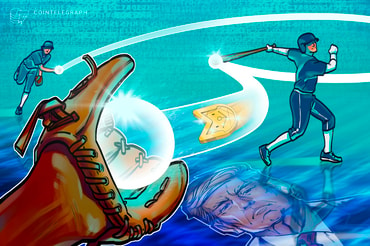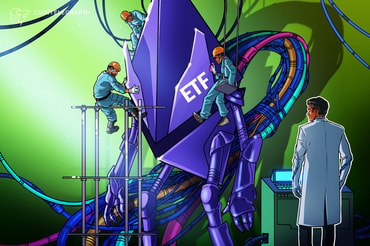Meme Coins and Macro: U.S. Credit Card Holders Most Stressed Since 2012

The U.S. consumer is increasingly struggling to keep up with credit-card loan payments, painting a challenging picture for the economy and speculative activity in non-serious assets like meme coins.
The percentage of credit card loans in serious delinquency, with balances outstanding for more than 90 days, increased to 10.69% in the first quarter, the highest since second-quarter 2012, data recently published by the New York Federal Reserve showed. While balances declined by $14 billion to $1.12 trillion during the first quarter, they’re still 13.1% higher than the year before.
Cracks in consumer finances are one of the most concerning economic data points, Austan Goolsbee, the president of the Chicago Federal Reserve Bank, said earlier this year, adding that it’s often a leading indicator that “things are about to get worse.”
A mounting debt pile means less disposable income and weakened inclination to invest in risk assets such as meme coins. According to an article written by Luigi Guiso, Tullio Jappelli and Daniele Terlizzese in the American Economic Review, borrowing constraints can lead to individuals keeping a lower proportion of their wealth in illiquid and risky assets.
Interestingly, meme coins, which are considered among the riskiest of digital assets, have been under pressure in the past four weeks, falling more than market leader bitcoin (BTC). Top meme coins by market value like DOGE, SHIB and WIF have dropped over 20% against bitcoin’s 2.4%, Coingecko data shows.
While consumer finances are weakening, it does not necessarily mean a complete collapse in meme coins, as “degens” might persist. Degens, or people engaging in high-risk speculative trading in the crypto market, are not fundamentally different from early internet adopters, AllianceDAO’s Qiao Wang said in a blog post, characterizing them as: “Financial risk-takers who are brave enough to try unproven products.”
They do not pay attention to metrics, tokenomics, fundamental analysis or technical analysis, as noted by Ledger Academy and are “committed to the projects and communities they invest in.”
Kelly Greer, head of Americas sales at Galaxy, said degens are likely to stay active in the market despite mounting debt levels.
“60% of Americans hold credit card debt and this continues to rise. By no coincidence, gambling and degeneracy also proliferate, @zerohedge may be right that the economy is cooked – but disagree on memes dying with it degens will gamble longer than the economy will stay solvent,” Greer said on X.
Edited by Sheldon Reback.
Disclosure
Please note that our privacy policy, terms of use, cookies, and do not sell my personal information has been updated.CoinDesk is an award-winning media outlet that covers the cryptocurrency industry. Its journalists abide by a strict set of editorial policies. In November 2023, CoinDesk was acquired by the Bullish group, owner of Bullish, a regulated, digital assets exchange. The Bullish group is majority-owned by Block.one; both companies have interests in a variety of blockchain and digital asset businesses and significant holdings of digital assets, including bitcoin. CoinDesk operates as an independent subsidiary with an editorial committee to protect journalistic independence. CoinDesk employees, including journalists, may receive options in the Bullish group as part of their compensation.
Omkar Godbole is a Co-Managing Editor on CoinDesk’s Markets team.

Published on Other News Site












